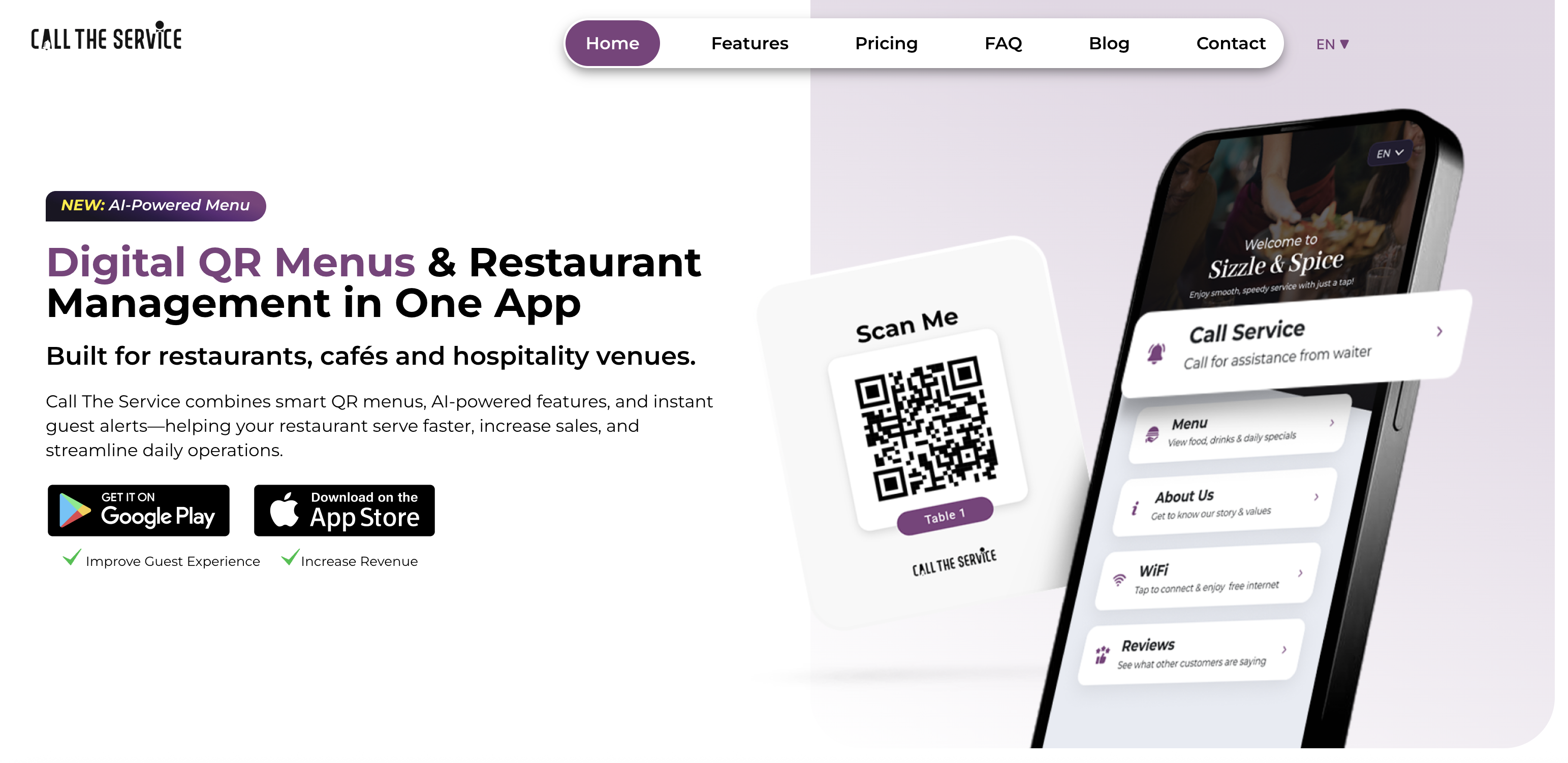Sustainability is redefining success in hospitality. Implementing strong restaurant sustainability practices not only reduces environmental impact but also improves operational efficiency and brand loyalty.
For restaurant and club owners, the shift toward green hospitality practices offers dual rewards, cost savings and a positive reputation among eco-conscious customers. Sustainable operations are no longer optional; they’re key to long-term profitability.
The Hidden Costs of Traditional Operations
Conventional practices, like printed menus and outdated service workflows, quietly drain resources. Paper menus alone contribute to deforestation and add recurring expenses for reprints and design updates. Over a year, restaurants spend thousands on materials that often end up in landfills.
Adopting restaurant sustainability practices eliminates this cycle of waste. Digital alternatives reduce printing costs, lower carbon emissions, and offer real-time updates—streamlining both content and cost management.
Digital Menus: The Foundation of Sustainable Service
Switching to digital menus is one of the simplest yet most effective green hospitality practices. They cut waste from disposable menus while offering flexibility in design and pricing. Updates can be made instantly, removing the need for reprints or redesigns.
Digital menus also enhance the guest experience through interactive visuals and dynamic layouts. As part of sustainable menu ideas, they allow you to feature seasonal items, promote local sourcing, and align with customer sustainability values, all while lowering operational costs.
AI-Generated Content: Visual Sustainability in Action
Traditional food photography requires travel, lighting setups, and food styling which leads to resource waste. By contrast, AI-generated visuals offer a cleaner, faster, and more environmentally friendly solution.
Using AI reduces the need for physical shoots and ingredient waste, making it one of the most efficient restaurant sustainability practices for marketing and menu management. These images can be refreshed instantly to keep menus visually appealing without harming the planet or your budget.
Reducing Food Waste Through Smart Systems
Digital order management platforms eliminate these inefficiencies by transmitting orders directly to the kitchen in real-time.
This approach minimizes human error, reduces spoilage, and allows precise tracking of ingredients. Incorporating this into your green hospitality practices creates a closed-loop system where every purchase aligns with demand, resulting in significant cost and waste reductions.
Data-Driven Efficiency and Waste Reduction
Managing sustainability isn’t just about recycling, it’s about proactive data use. Digital menus and analytics tools allow owners to track sales patterns and inventory trends. This insight supports sustainable menu ideas, such as promoting surplus items or adjusting prices to optimize stock rotation.
With these restaurant sustainability practices, owners can identify popular dishes, refine sourcing strategies, and ensure that every ingredient contributes to profit rather than waste. Data-driven decisions turn sustainability into a performance advantage.
Service Optimization for Energy Savings
Every minute of service inefficiency increases energy use. Long wait times and slow table turnover keep lights, HVAC systems, and kitchen equipment running longer.
Digital systems that streamline guest communication, automate table management, and improve service speed not only boost guest satisfaction but also reduce energy consumption. These green hospitality practices directly translate to lower utility bills and improved profit margins, reinforcing sustainability as a business strategy.
Empowering Staff with Smarter Workflows
High turnover is a major cost for restaurants. Confusion and burnout stem from outdated manual systems. Implementing digital solutions simplifies task assignments and communication, helping staff perform efficiently and confidently.
By embedding efficiency into your operations, restaurant sustainability practices extend beyond environmental goals, they create happier, more productive teams. Real-time analytics can also help with labor optimization, cutting unnecessary hours while maintaining service quality.
Call The Service (CTS): Technology That Drives Sustainability

For owners ready to fully embrace sustainability, integrated platforms like Call The Service (CTS) provide everything needed for streamlined, eco-friendly operations. CTS replaces paper menus with digital alternatives, supports AI-generated visuals, and enhances real-time efficiency.
By combining multiple green hospitality practices into one platform, CTS allows restaurants to reduce costs, cut waste, and deliver seamless service, all key pillars of restaurant sustainability practices.
Conclusion
The restaurant industry is at a turning point. Through innovations like digital menus, AI-generated visuals, and real-time data management, restaurant owners can build eco-efficient systems that lower waste, improve service, and strengthen profitability. These sustainable menu ideas redefine dining success—proving that sustainability and profit can go hand in hand.


